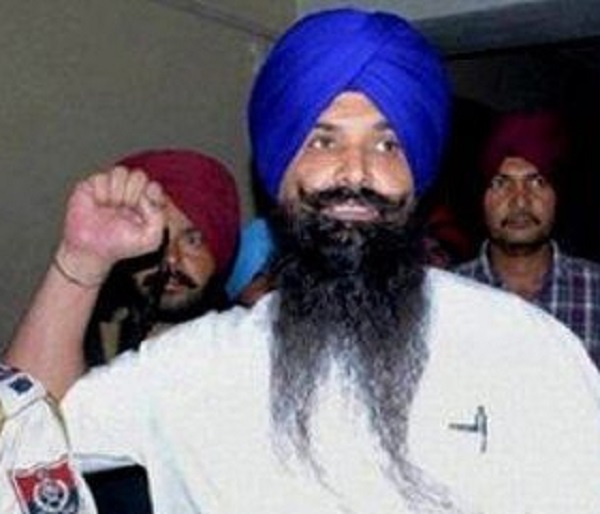New Delhi, (Samajweekly) The Supreme Court on Wednesday declined to grant relief on a plea filed by Balwant Singh Rajoana, seeking commutation of his death penalty in the 1995 assassination case of former Punjab Chief Minister Beant Singh and others, in view of over 10 years delay in deciding a mercy petition, saying “it is within the domain of the executive to take a call on such sensitive issues”.
A bench comprising justices B.R. Gavai, Vikram Nath and Sanjay Karol said the petitioner himself never submitted any mercy petition and the alleged mercy petition of 2012 was filed by the Shiromani Gurdwara Parbandhak Committee (SGPC).
“We may also record here that the three decisions relied upon by Mukul Rohatgi in support of his submission regarding inordinate delay in disposal of the mercy petition and resultantly commutation in such cases having been granted by this court, do not help the petitioner in view of the facts and situation being different in those three cases and in the present case,” said the bench.
Justice Nath, who authored the judgment on behalf of the bench, said: “We also find that the Ministry of Home Affairs, upon material consideration of various reports from its different branches, has come to the conclusion that the consideration may be deferred as it could have an impact of compromising the security of the nation or creating law and order situation.”
The bench said it would not be within its domain to delve upon the decision of the competent authority to defer taking of any decision at present.
“It is within the domain of the executive to take a call on such sensitive issues. As such, this court does not deem it appropriate to issue any further directions,” it said.
The bench noted that the stand of the Ministry of Home Affairs to defer the decision on the mercy petition of the petitioner “actually amounts to a decision declining to grant the same for the present”.
The top court, in its judgment on Rajoana’s plea, said, “It is, however, directed that the competent authority, in due course of time, would again as and when it is deemed necessary, may deal with the mercy petition, and take a further decision. The writ petition is disposed of accordingly with the aforesaid observations.”
The bench noted that after the communication of the Ministry of Home Affairs on September 27, 2019, the proposal for considering the commutation of the death sentence of the petitioner was started.
“A decision was taken to keep the same pending till disposal of the pending appeals before this court, filed by the co-accused as well as by the CBI, as according to the competent authority, it would have a bearing and it could be relevant for taking a final decision on the said proposal of commutation,” said the bench.
However, after the directions issued on December 2, 2020 and May 2, 2022, the matter was again considered by the competent authority and it was decided to defer the question of commutation in view of the reasons given in the affidavit filed by the Ministry of Home Affairs, observed the bench.
“Thus, it cannot be alleged that there has been an inordinate delay in disposal of the mercy petition,” said Justice Nath.
Former Chief Minister of Punjab Beant Singh, along with 16 others, lost their lives while a dozen others were injured in a bomb blast in August 1995. Rajoana was arrested on January 27, 1996. Rajoana, along with eight others, who had hatched a conspiracy and had executed the bomb blast, were put to trial.
In July 2007, the trial court convicted Rajoana along with co-accused Jagtar Singh Hawara, Gurmeet Singh, Lakhwinder Singh, Shamsher Singh and Nasib Singh. The petitioner along with co-accused Jagtar Singh Hawara were awarded death sentence.
In death reference, the high court vide judgment dated December 10, 2010 confirmed the conviction and sentence of the petitioner. However, while confirming the conviction of co-accused Jagtar Singh, it commuted the death sentence into life imprisonment.
The other co-accused preferred to appeal before the top court. However, Rajoana did not file any appeal after the judgment of the high court.









